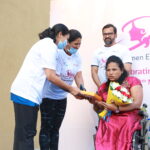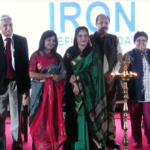Hysterectomy should be the last resort for a woman and there is a need to put a stop to unnecessary hysterectomies, say doctors. It has serious health implications. The abnormal rise in the incidence of hysterectomy shows that we as society are failing in improving women’s health.


While hysterectomies have seen a reduction in Western countries with doctors favouring more conservative approaches, in India these have become the second most common procedure performed by obstetricians and gynaecologists after the caesarean section. The number of hysterectomies done in India continues to rise despite there being no concrete reason for conducting the procedure. Women are getting their uterus removed even in cases where the organ can be saved by other medical options. A significant number of hysterectomies done in India are unnecessary and may even be unethical.
About 70% of it in India are conducted in the private sector, with much higher rates in the less educated and rural population. More and more women in the country are getting this at a younger age, many of them being in their twenties. This is very concerning. In Karnataka, a study has found that nearly 50% of women who had undergone hysterectomy were less than 35 years of age. In Gujarat, the incidence is 20.7 per 1,000 women years, which is four times higher than in countries like USA and Germany.
Hysterectomy has serious health implications:
There are many reasons for unindicated hysterectomy, including patient-related factors like menstrual taboos, lack of social and financial security, lack of knowledge, and lack of access to primary healthcare. Many women regard reproduction as the sole function of the uterus and are easily convinced that hysterectomy is a permanent solution if they are not using any form of contraception. They do not realize that it has serious health implications. The abnormal rise in the incidence of hysterectomy shows that we as society are failing in improving women’s health.
Hysterectomy is not without side effects, with younger patients bearing the brunt. Hysterectomised women see their ovarian reserve go down, which in turn causes skin dryness and decreased sexual desire. The surgery is often accompanied by removal of ovaries to reduce the risk of ovarian cancer. There may be vaginal burning, increased urinary frequency and early onset of menopause. Women who have undergone hysterectomy tend to have increased incidence of heart disease and may also show symptoms of osteoporosis at an early age.
Women, mostly from poor socio-economic backgrounds, are often coaxed into it with the fear of cancer. In many instances, it is inappropriately recommended as the first line of treatment for minor gynaecological issues that may not directly be related to the uterus, such as lower abdominal pain, back ache or white discharge. Early marriage, closely spaced childbearing and early hysterectomy is a road map followed by many Indian women during their reproductive years.
Also Read: Poor intimate hygiene – the biggest causes of cervical cancer
Hysterectomy should be the last resort for a woman
Many alternative methods of treatment to it today exist, including oral remedies, hormonal injections for excessive menstrual bleeding, and removal of just the fibroid and not the entire uterus. Regular cervical cancer screening will also help reduce the incidence. There is a dire need of counselling services for women regarding their reproductive health, the importance of uterus and the medical conditions that necessitate hysterectomy. With the advances in medical science, hysterectomy should be the last resort for a woman, not the first.
A 2018 Indian government survey found that more than 22,000 Indian women aged 15-49 out of the 700,00 surveyed had undergone a hysterectomy. The fourth National family & Health Survey found that 6% of women in age group of 30-49 years had undergone a hysterectomy in India as a whole. The purpose of it is to save women from uterus-related, life-threatening conditions. The procedure should be done above 45 years to decrease its side effects.


Dr. Vidya V Bhat
Medical Director
RadhaKrishna Multispecialty Hospital
Girinagar, Bengaluru











